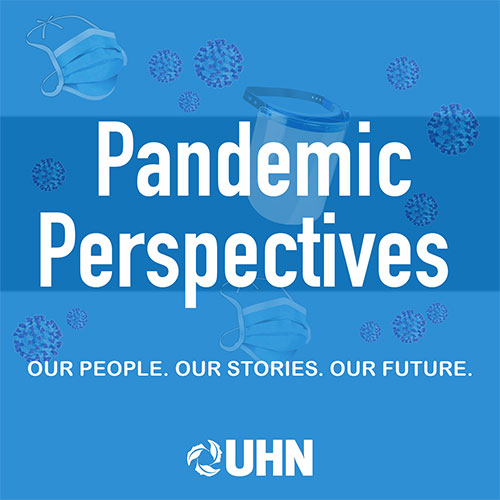By Dr. Kevin Smith and Ms. Sheila O'Brien
As with many things affected by the past year, the working world will never be as it was before March 2020. We have, for the most part, successfully ridden a tsunami of change to our working lives in the health sector. We also know many businesses have been decimated by this pandemic and their teams dismantled. In many ways we are the fortunate – though it didn't feel that way at many times throughout this past year. In healthcare, we must strive to hold on to the unexpected benefits, learn and improve our new ways of working, and recognize that the systems we "baby boomers" designed and cherished are being swept away.
'We can and must embrace new ways of working and create nimble, supportive and collaborative work environments as we open up to the young workforce who are eager to show us new ways.'
If you think about it, the last time the whole world was in the grip of major change and to a much lesser degree, fear, was at the end of 1999, when we worried about what the new century would do to our computer systems. Yes – many of you will remember Y2K as a non-event – but that is because the fear of what would happen allowed the whole world to step up its technological capability, invest in new systems and invest in computing know-how. And, a very good thing as it turns out. Imagine what would have happened if we hadn't had the capability of Teams, Zoom and other programs that have allowed us to work through this past year.
And what should we think about in this maelstrom of change? That there is too much process in the administration of our work lives. That cycle times to these processes can be reduced by 90 per cent in many instances. That we can tolerate more risk than we've taken in the past. That remote work and new approaches to collaboration and team building are all possible. We can and must embrace new ways of working and create nimble, supportive and collaborative work environments as we open up to the young workforce who are eager to show us new ways.
Consider how this way of working has allowed many people to regain hours in their day because they're not commuting nor are they moving from meeting to meeting. Because of this there are savings to be had for the individual and more time for their families and friends. These are and will be the benefits of working from home.
The downside is that people miss their colleagues and the way we have developed teams and a collegial environment. And, working from home has – in many cases – meant homeschooling children, managing financial stresses if work circumstances have changed for a member of the household, and feelings of extreme isolation for those who live alone. We also must acknowledge that working from home is not possible for many in healthcare – which has created a feeling of "the lucky and the unlucky." Some enjoy the benefits of staying home and working, while the work world for many of our frontline staff has been harder, more stressful because of this virus. As is so often the case, new models create benefits and challenges. Our task is to maximize the former and mitigate the latter.
So the challenge ahead of us is to incorporate the benefits of the past year in our working lives while learning to work in ways that appreciate and support the ideals of our younger and increasingly diverse workforce – inclusion in decision-making, space for all voices, more personal autonomy and, above all, the ability to contribute to meaningful work. In healthcare, we have an embedded advantage over many as what could be more important than contributing to the health and well-being of our fellow citizens and people around the globe? Our Strategic Vision calls on us, to create A Healthier World. Each member of TeamUHN does this everyday in some way.

UHN News is presenting a series of essays on the effects of a year of COVID-19 and its legacy for UHN's vision of A Healthier World.
'So the challenge ahead of us is to incorporate the benefits of the past year in our working lives while learning to work in ways that appreciate and support the ideals of our younger and increasingly diverse workforce.'
We will close with a final thought about this new world of work. It opens up the possibilities around recruiting from across Canada and around the world in many areas of the hospital. Imagine people working from their homes in Iqaluit, St. John's, Victoria, Calgary Geneva or Cape Town. Imagine recruiting the very best talent in the world, without worrying about the restrictions and costs associated with uprooting a person from their community.
But we don't have to imagine this – one of the authors of this essay has been working remotely and building a new way of working and a new team while working from Calgary. Sheila has yet to meet face-to-face with her colleagues, her team members, or her boss. And while she is very much looking forward to doing so in the months ahead, when travel restrictions allow the movement between provinces, her experiences – good and less so – will serve us well as we rethink the future of work and how we work together for A Healthier World.
Dr. Kevin Smith is President & CEO, UHN, Professor, Rotman School of Management, University of Toronto, and Professor, Department of Medicine, McMaster University
Ms. Sheila O'Brien, CM, is
Executive Vice President of People, Culture and Community, UHN,
Previous essays in the Pandemic Perspectives series:
